Fort Pillow Massacre Report First Edition 300 African American Troops Killed
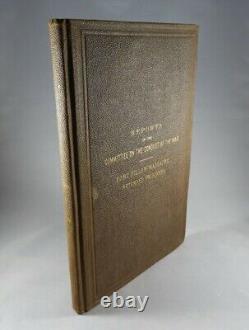
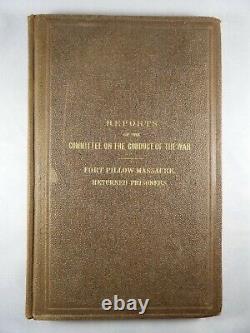
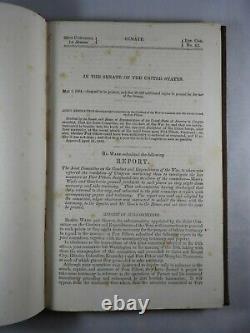
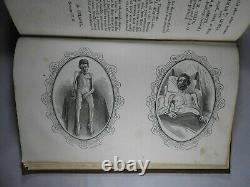
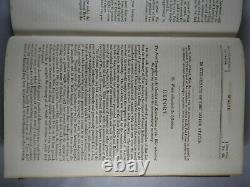

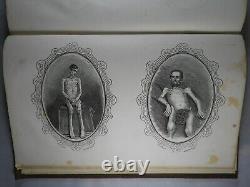

FORT PILLOW MASSACRE - CIVIL WAR. United States House of Representative. First edition, contains reports 63 and 68, report 63 contains 128 pages, report 68 contains 34 pages, illustrations at end, measures 9 by 6 inches, and in fine condition with minor wearing to the boards and foxing throughout the pages. CONGRESS REPORT ON THE FORT PILLOW MASSACRE, ONE OF THE MOST CONTROVERSIAL EVENTS OF THE CIVIL WAR.
After the Battle of Fort Pillow in Tennessee on April 12, 1864, some 300 African American soldiers who surrendered were later killed under Confederate General Nathan Bedford Forrest's orders. The Confederate refusal to treat these troops as prisoners of war infuriated the North and led to the Union's refusal to participate in prisoner exchanges. It was one of the most controversial events of the Civil War.INCLUDES HARROWING EYEWITNESS ACCOUNTS OF THE WAR CRIMES COMMITTED AND ILLUSTRATIONS OF THE SOLDIERS WHO HAD BEEN STARVED TO NEAR DEATH. This scarce volume provides devastating reports from the U. Congress' investigation into the Fort Pillow Massacre and offers harrowing eyewitness accounts of the war crimes committed and illustrations of the soldiers who had been starved to near death. SOME 300 AFRICAN AMERICAN SOLDIERS WHO SURRENDERED WERE LATER KILLED UNDER CONFEDERATE GENERAL NATHAN BEDFORD FORREST'S ORDERS.
The following are two eyewitness accounts from Surgeon Horace Wardner describing the condition of the Federal black troops in the hospital, They were the worst butchered men I have ever seen. I have been in several hard battles, but I have never seen men so mangled as they were; and nearly all of them concur in stating that they received all their wounds after they had thrown down their arms, surrendered, and asked for quarters. They state that they ran out of the fort, threw down their arms, and ran down the bank to the edge of the river, and were pursued to the top of the bank and fired on from above.
" (page 13) and from Private Nathan Hunter of Colored Company D, 6th United States Heavy Artillery describing the massacre as he and others fled the battlefield, "They went down the hill, and shot all of us they saw; they shot me for dead, and I lay there until the next morning when the gunboat came along. They thought I was dead and pulled my boots off.
